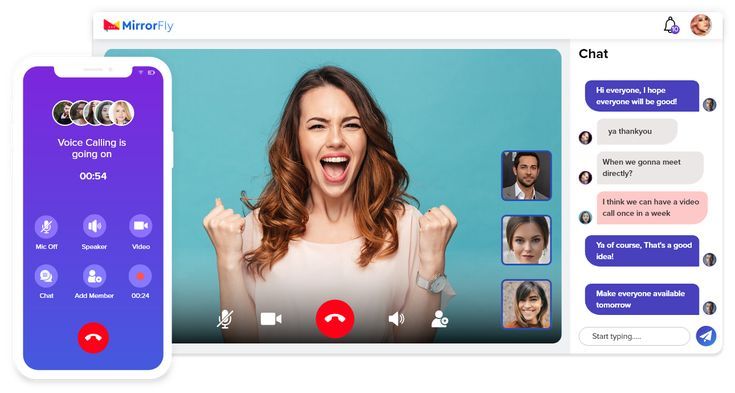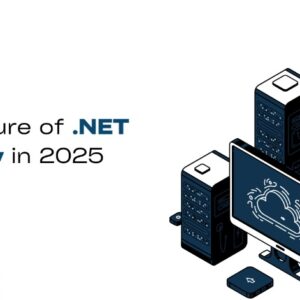
At the start of this millennium, Application Programming Interfaces (APIs) began to be used, which has gradually raised its reach and today stands up with almost 71% of developers using it regularly. Typically APIs like Video call APIs to simplify the development process and incorporate functionalities without having to write separate code for it. Besides, along with an increase in developers’ choice in the use of APIs to build video chat app for android, iOS, and web apps to improve the software development cycles, nowadays business owners have begun to save on operational costs with the implementation of APIs.

What are the Roles of Video APIs?
The role of Video APIs is to provide server infrastructure access to developers and allow them to add key functions to their products without encoding, hosting, and delivering. When developers use Video APIs, they can render the experience to be more engaging. It will range from content to conversion to boost metrics and meet goals because of customized video services. That too without the costs of building a complete video streaming infrastructure. In the following sections let’s look at Video Call APIs’ benefits with features and how you can use them to build disruptive communication apps yourself….!
How can Video Call SDKs make a difference in your developer journey?
For businesses that backed their developers to use Video call SDKs, the results have been phenomenal. Not just with higher sales but video calls also ensured better engagement of the customers, and indirectly helped in minimizing operational costs. Hence, by making the correct choice of Video SDK provider, businesses have been benefitting on multiple levels…
Video call APIs: An overview of the benefits
Video call APIs give developers direct access to server infrastructure which eases the process of integration. Thus, integrating newer functions like video calling/chatting into existing apps can enhance its capabilities. Let’ have a look at some of the benefits with its features:
- Scaling abilities are optimized – In a standard scenario when developers are using WebRTC to integrate video and audio real-time communication services, the browser is more than enough since peer-to-peer technology handles all the relays. However, for this top-layer to perform, developers will have to use a server to persist with peers for communications. To cut down the costs and the overall time for functional maneuvering, Video API has grown to become the ideal solution. These help developers to overcome bandwidth bottlenecks, and scale platforms.
- Signaling servers – The importance of using intermediary servers for media and data exchange in real time cannot be emphasized. For this purpose a signaling server is used for establishing connections prior to a conversation. However, this could be expensive and could have extensive signaling problems. Hence, a single solution to all of the issues and complex issues of server architecture, and video APIs are preferred.
- TURN servers – Standard signaling server options in use are: STUN (Session Traversal Utilities for NAT). It is faster and not of too much load, hence it is the most prefered. It also ensures the correct identification of unique IP addresses for establishing a connection. Secondly, TURN (Traversal Using Relays around NAT) – This server is used when the situation is such that it is not possible for peers to communicate directly. Many times firewalls are the obstacles and in such cases this type of server becomes an intermediary. But they are expensive and could cause more load. This is one of the primary reasons for using Video APIs.
- Quick Implementation – A major advantage with using Video SDKs over native video apps is in the former being browser-based service unlike native video apps. Hence, it is quicker to download the SDK and implement the secure pre-built solution. It saves time and costs making it the best choice.
- Virtual Video simplifies businesses – The lessons learnt from the covid pandemic emphasize the need for an agile and flexible approach to business operations. The technology solution – video sales – has overturned traditional approaches and moved away from brick-and-mortar concepts. Businesses are now using virtual sales to ensure business continuity.
- Customized video presentations – To satisfy the unique needs of every customer and engage them over longer periods, remote sales are a profitable solution. Customized video presentations, sales calls ensure higher conversion rates.
- Video Marketing helps E-Mail marketing – Since email marketing is a key strategy used in B2B sales, the pandemic has led to video sales enhancing email marketing. Targeted personalized video messages are more effective than just printed text in engaging and converting the audience.
- Minimizing Operational Costs – By using video call SDKs, the overheads of running a business are minimized. The virtualized services need only a persistent internet connection and accessories for presentation, saving on other operational costs including office rents, logistics costs, and more.
- App-based customer engagement – No longer do sales teams have to invest in physical visits for presentation, using browser-driven video APIs they are able to leverage the reach of web cameras to reach out to individuals and large groups of employees for effective sales conversions. Costs are minimized since no additional accessories and equipment need to be bought.
- Multiple Languages Availability – While video call integration, one makes available multiple language support solutions. Users can watch the subtitles of sales presentations in the language of their choice. Hence, improve customer engagement.
- Control Video presentations – When running the sales pitch with video API-based solutions, the business has better control over the conversations with customers. There is scope for muting the video or blurring the faces, or changing background for a better sales presentation.
Benefits of Video APIs: The Developers Angle
Along with the technical advantages of using Video APIs other advantages includes,
- Fast-track products/services launch Since functionalities are already pre-built and readily available for integration with the application, the overall time needed for development is saved. These can be quickly integrated on top of APIs extending the value of a service by including live-streaming, recording of calls, breakout rooms. It is easier to build unique features and add customization features with video APIs.
- Compliance with Data Protection Laws As organizations and governments across the world become increasingly stringent about data privacy and regulations. The usage of solutions that are already compliant with such laws like GDPR in Europe, let you save time and costs.
- Switching APIs It is now easy to switch between APIs and add new features or integrate other functionalities. It brings flexibility and increases scope of an application, unlimiting the earlier restriction placed on software developed especially for a service.
- Tech support and lucid documentation available Further easing developers tasks is the availability of extensive documentation around the clock is done with the tech support by API providers. Here, the VCaaS solution comes pre-supported since documentation is clearly available.
How you can Leverage Video Call APIs to Build your HD Voice and Video Calling App
Based on the above discussions, the scope of using Video Call APIs to bolster your software development cycle could be much more clear now. However, we are here always available with our API for you to provide the last mile services. All this assuring you that your video-based application with the cutting-edge is set for market ready! So, reach out to get the process rolling…
Author Profile
- I am the owner of the blog readree.com. My love for technology began at a young age, and I have been exploring every nook and cranny of it for the past eight years. In that time, I have learned an immense amount about the internet world, technology, Smartphones, Computers, Funny Tricks, and how to use the internet to solve common problems faced by people in their day-to-day lives. Through this blog, I aim to share all that I have learned with my readers so that they can benefit from it too. Connect with me : Sabinbaniya2002@gmail.com
Latest entries
 Digital MarketingJuly 13, 2025The Future of .NET Security: Key Trends to Watch in 2025
Digital MarketingJuly 13, 2025The Future of .NET Security: Key Trends to Watch in 2025 BlogJuly 12, 2025Top 10 AI Video Generator Tools to Watch in 2025
BlogJuly 12, 2025Top 10 AI Video Generator Tools to Watch in 2025 Artificial IntelligenceJuly 11, 2025Why AgentForce Is the Right Choice for Generative AI Development
Artificial IntelligenceJuly 11, 2025Why AgentForce Is the Right Choice for Generative AI Development Artificial IntelligenceJuly 10, 2025The Role of AI in Shaping Full-Stack Product Development in 2025
Artificial IntelligenceJuly 10, 2025The Role of AI in Shaping Full-Stack Product Development in 2025